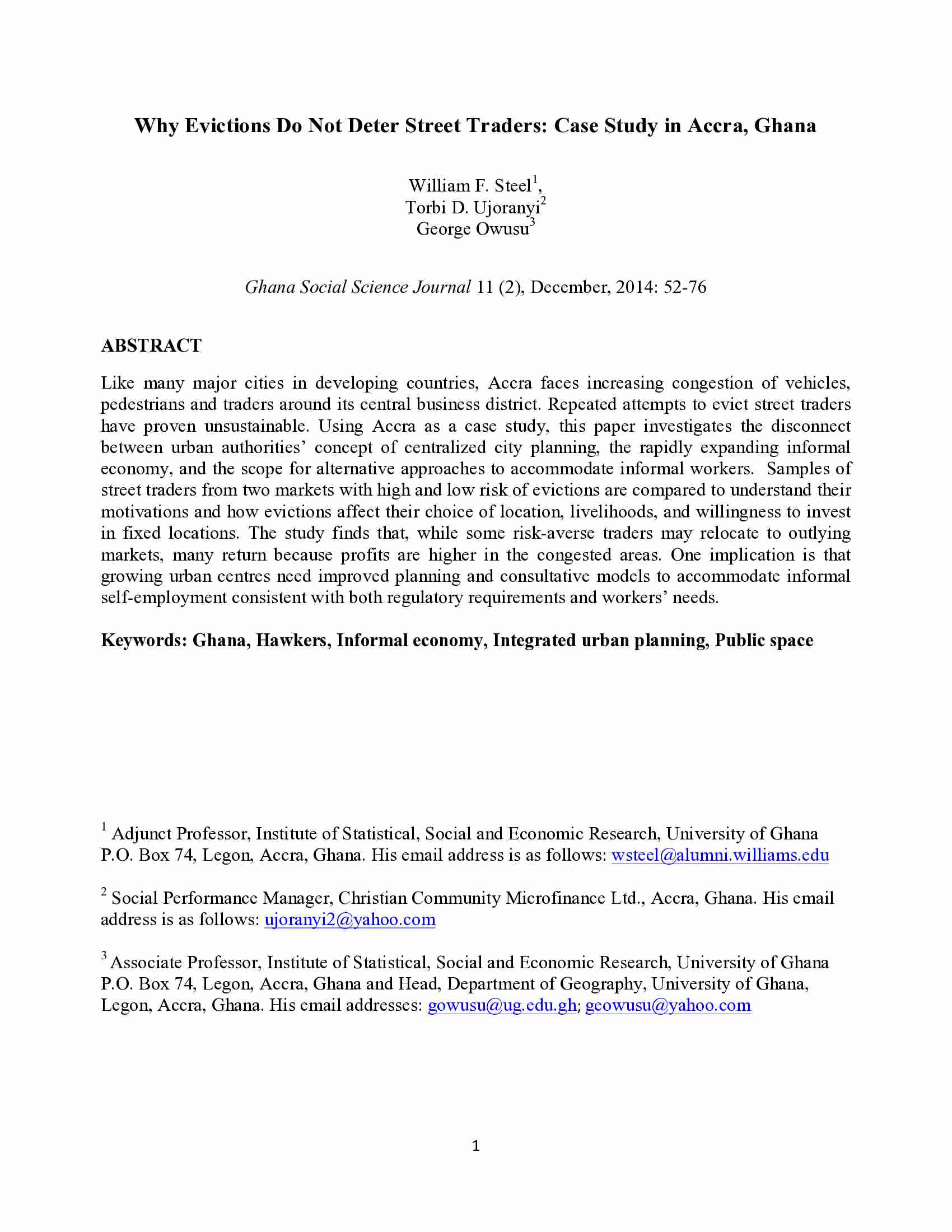Why Evictions Do Not Deter Street Traders: Case Study in Accra, GhanaGhana Social Science Journal
Abstract: Like many major cities in developing countries, Accra faces increasing congestion of vehicles, pedestrians and traders around its central business district. Repeated attempts to evict street traders have proven unsustainable. Using Accra as a case study, this paper investigates the disconnect between urban authorities’ concept of centralized city planning, the rapidly expanding informal economy, and the scope for alternative approaches to accommodate informal workers. Samples of street traders from two markets with high and low risk of evictions are compared to understand their motivations and how evictions affect their choice of location, livelihoods, and willingness to invest in fixed locations. The study finds that, while some risk-averse traders may relocate to outlying markets, many return because profits are higher in the congested areas. One implication is that growing urban centres need improved planning and consultative models to accommodate informal self-employment consistent with both regulatory requirements and workers’ needs.
See related news article, AMA gives up fight against hawkers; Until alternative markets are found.
View list of all: Journal Articles

